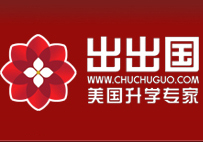The day that fans have waited years for has drawn tantalizingly close: this Friday The Hunger Games movie finally opens in theatres across the United States.
However, even on the eve of the film’s release, considerable controversy still surrounds the franchise.
The film is based on a trilogy of books, the first of which was originally published in the US on September 14, 2008. The series went on to dominate the American bestsellers charts, and today over 24 million copies are in print in the United States alone.
Although the books have found a wide readership extending across generational gaps, in the United States the series is marketed as Young-Adult Fiction, recommended for readers 12 and older, and has even been added to many official school reading lists.
But the theme of fighting to the death, and scenes of graphic violence, all including children, have incited a debate of what the ‘Young-Adult Fiction’ label really means and what is appropriate for young readers.
In fact, in 2010 the American Library Association listed The Hunger Games at #5 of its Top Ten Most Frequently Challenged Books of 2010. According to ALA criteria, “A challenge is an attempt to remove or restrict materials, based upon the objections of a person or group.”
And the movie has reignited controversy. Online discussion has highlighted perceived similarities between Hunger Games and other films and books, including The Running Man (1987) and The Long Walk (1979). On March 18, Roger Ebert posted a blog entry accusing the film of recycling ideas and plot elements from Japanese thriller Battle Royale (2000).
But despite public controversy, producer Lions Gate has successfully used viral media to whip the American movie-going public into a veritable Hunger Games frenzy. According to the New York Times, the film’s marketing staff consists of only 21 people and has operated with a budget of only $45 million. (Larger Hollywood studies frequently spend $100 million marketing releases.) But by exploiting social media platforms like Facebook, Twitter, YouTube, Tumblr, iPhone games and live Yahoo streaming from the premiere, this small team has built great buzz around what might prove to be the biggest blockbuster of the year.
In mainland China, however, fans will have to wait: no official release date has been announced. But the good news is that Hollywood Reporter confirms the Hunger Games will be among the 20 foreign films released in China in 2012, and rumor of an April 27 release date is circulating online.
With a little more than a month to kill before the film’s release, new Chinese fans still have plenty of time to pick up the books to find out what everyone has been talking about. It is a perfect book for Chinese students preparing for English language tests and for students preparing to travel to the US who want to have conversation topics for when they meet their American classmates.
很多同学都喜欢用美国电影来提高自己的英语水平,出出国小编也是。下面就是这篇文章的译文,希望能对大家的英语提高有所帮助。
最近粉丝一直等待的那天终于接近了:《饥饿游戏》将于北美2012年3月23日上映了!然而,影片的发行日期越接近,引起的争论就越猛烈。
《饥饿游戏》是根据苏珊•柯林斯的系列三本书的第一本,最初在美国发表于2008年9月14日。后来该系列就火爆以及获得了各种荣誉, 高居《纽约时报》畅销书排行榜第一名,在榜66周。如今该系列在美国已发行2.4亿册。
虽然《饥饿游戏》已经获得广泛跨年代的读者群,该书在美国是以青少年读物而销售的,为12岁以上的读者推荐的,甚至被添加到许多学校的正式必读书目的清单。
但是贯彻该书的战斗到死的主题,包括许多暴力场面,都以青少年为参加者,引起了很多争论。争论的焦点包括青少年读物的定义应该是什么,还有更广泛的问题:什么样的题材是最适合年轻读者。
其实,《饥饿游戏》已经被美国图书馆协会(ALA)放到他们所设立的《2010年十大最被挑战的书名单》。根据ALA的标准所谓的“被挑战”指的是“根据一个人或团体的反对尝试铲除或限制的”。
最近拍成电影,《饥饿游戏》又掀起了一场争论。网上讨论强调《饥饿游戏》跟其他电影,尤其是跟1987年的《过关斩将》和1979年的《长途步行》,相似得都让人怀疑是抄袭的地方。在2月18日,美国出名的评论家罗杰·艾伯特的博客上发表一个文章指责《饥饿游戏》抄袭日本2000年发行的《大逃杀》。
可惜中国的《饥饿游戏》粉丝还得等待:《饥饿游戏》在中国的上映日期还没被公布。但是好莱坞报道证实今年的20在中国大陆上映的国外片子当中会有《饥饿游戏》一部,还有4月27日发行的传闻在网上流传呢。
消磨这稍微多余一个月的时间,中国新的粉丝可以先找这本书看看所谓的争论到底是为了什么。这本书很适合正在准备英语考试的学生,或想多了解美国文化的学生。


